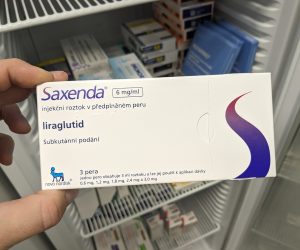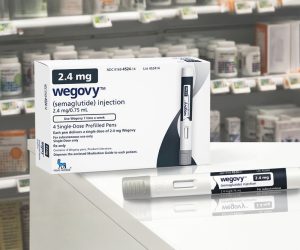The Role of Vitamin D in Men’s Hormonal Health
Vitamin D: The Unsung Hero of Men’s Hormonal Health
When people think of vitamin D, they often associate it with strong bones and immune support. However, this “sunshine vitamin” plays a far more critical role in men’s health—especially when it comes to hormonal balance and testosterone production.
Studies show that men with sufficient vitamin D levels tend to have higher testosterone levels, while deficiencies in this vital nutrient can lead to hormonal imbalances, fatigue, reduced libido, and even depression.
At Florida Men’s Health, we’ve seen how addressing vitamin D deficiencies can transform the way men feel and function. In this blog, we’ll explore why vitamin D is essential for men’s hormonal health, how it affects testosterone, and the steps you can take to optimize your levels.
How Vitamin D Affects Testosterone
Vitamin D acts more like a hormone than a traditional vitamin. It interacts with nearly every cell in your body, including those responsible for testosterone production. Here’s how it works:
- Regulating Testosterone Production:
Vitamin D receptors are present in the testes, where testosterone is produced. Adequate vitamin D levels help stimulate and regulate testosterone synthesis.
- Reducing Inflammation:
Chronic inflammation can impair testosterone production. Vitamin D has anti-inflammatory properties that help protect the cells responsible for hormone production.
- Improving Mood and Stress Response:
Vitamin D influences mood-regulating neurotransmitters, reducing cortisol levels and creating a better environment for testosterone production.
- Boosting Energy and Vitality:
Higher vitamin D levels are linked to increased energy and endurance, both of which are supported by optimal testosterone levels.
Symptoms of Vitamin D Deficiency in Men
Vitamin D deficiency is surprisingly common, with nearly half of adults in the U.S. having insufficient levels. For men, this deficiency can manifest in several ways:
- Low Energy Levels: Persistent fatigue despite adequate sleep.
- Decreased Libido and Sexual Performance: A drop in testosterone can impact libido and erectile function.
- Mood Changes: Feeling irritable, anxious, or depressed.
- Weakened Immune System: Increased susceptibility to colds, flu, and other infections.
- Bone and Joint Pain: Vitamin D deficiency contributes to weaker bones and muscle aches.
If you’re experiencing any of these symptoms, it’s worth investigating your vitamin D levels.
Think you might be low on Testosterone? Florida Men’s Health offers comprehensive testing and expert guidance to restore your energy and hormonal balance. Contact us today to schedule a consultation.
The Link between Sunlight, Vitamin D, and Testosterone
One of the primary ways your body produces vitamin D is through sunlight exposure. When your skin is exposed to UVB rays, it triggers a process that creates vitamin D. However, modern lifestyles—spending most of the day indoors or wearing sunscreen—often limit this natural production.
Inadequate sunlight exposure leads to low vitamin D levels, which can directly impact testosterone production. Here’s why this connection matters:
- Seasonal Variations: Testosterone levels often drop in winter months when sunlight exposure decreases.
- Geographical Differences: Men living in areas with limited sunlight are more likely to experience vitamin D and testosterone deficiencies.
Supplementation can bridge this gap, ensuring your body has the resources it needs to maintain hormonal health.
How to Boost Vitamin D Levels
Optimizing your vitamin D levels doesn’t have to be complicated. Here are some effective strategies:
- Increase Sunlight Exposure:
Aim for 10–30 minutes of direct sunlight exposure on your skin daily, preferably during midday.
- Incorporate Vitamin D-Rich Foods:
Add foods like fatty fish (salmon, mackerel), egg yolks, fortified dairy products, and mushrooms to your diet.
- Take Vitamin D Supplements:
For most men, daily supplementation is the easiest and most reliable way to maintain optimal levels. A dose of 1,000–2,000 IU is generally safe, but higher doses may be required for severe deficiencies.
- Get Your Levels Tested:
Routine blood tests can determine your current vitamin D levels and help tailor your supplementation plan.
- Combine Vitamin D with Magnesium and Calcium:
These nutrients work synergistically to improve bone health, testosterone production, and overall hormonal balance.
Vitamin D and Testosterone Replacement Therapy
For men with severe vitamin D deficiency or significantly low testosterone, lifestyle changes alone may not be enough. In these cases, testosterone replacement therapy (TRT) can help restore balance.
At Florida Men’s Health, we combine advanced hormone therapies with nutritional guidance to create a comprehensive plan tailored to your unique needs. Addressing vitamin D deficiencies alongside TRT can optimize results and help you regain energy, vitality, and confidence.
Long-Term Risks of Ignoring Vitamin D Deficiency
Neglecting vitamin D deficiency can lead to serious health complications, including:
- Osteoporosis: Weak bones and increased risk of fractures.
- Chronic Fatigue: Persistent tiredness that affects daily activities.
- Increased Risk of Illness: A weakened immune system makes it harder to fight infections.
- Hormonal Imbalances: Prolonged deficiencies can lead to further drops in testosterone, exacerbating symptoms like low libido, mood swings, and muscle loss.
By addressing vitamin D deficiency early, you can prevent these risks and improve your overall quality of life.
How Florida Men’s Health can help restore your Hormonal imbalances
At Florida Men’s Health, we understand how seemingly small factors like vitamin D levels can have a significant impact on your hormonal health. That’s why we take a comprehensive approach to uncover and address the root causes of your symptoms.
Whether you need guidance on supplementation, lifestyle changes, or advanced testosterone therapies, we’re here to help. Our team is dedicated to helping you feel strong, energized, and confident at any age. Contact Florida Men’s Health today to start your journey toward better health.
Summary
- Vitamin D supports testosterone production, reduces inflammation, and improves mood and energy.
- Symptoms of vitamin D deficiency include low energy, reduced libido, mood swings, and weakened immunity.
- Sunlight exposure, vitamin D-rich foods, and supplementation are effective ways to maintain optimal levels.
- Severe deficiencies or hormonal imbalances may require testosterone replacement therapy (TRT) for comprehensive results.
- Florida Men’s Health offers expert guidance and treatments to restore vitamin D and hormonal balance.







